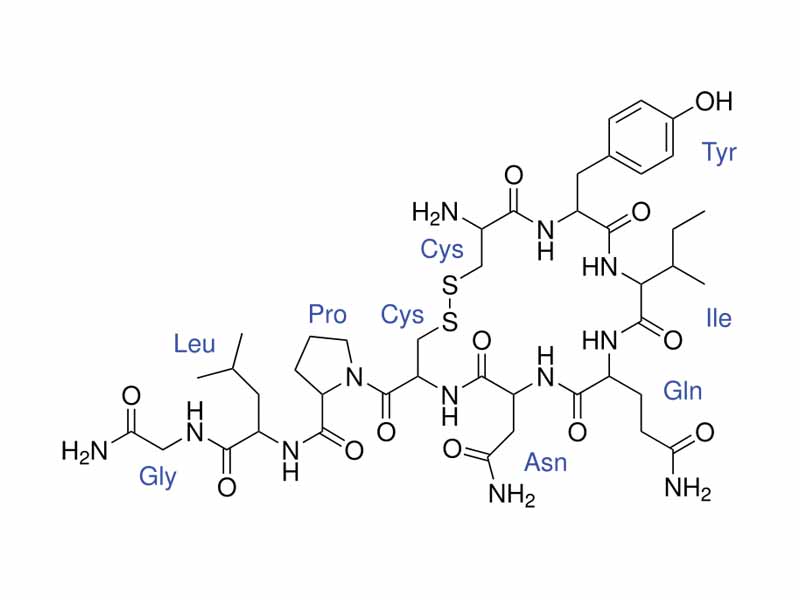Interdisciplinary Note (13 of 17)
Many hormones are peptides. The anterior and posterior pituitary glands produce many peptide hormones. The anterior pituitary gland secretes luteinizing hormone, follicle stimulating hormone, prolactin, adrenocorticotrophic hormone (ACTH), and growth hormone. The posterior pituitary gland secretes antidiuretic hormone and oxytocin. Additional peptide hormones include atrial-natriuretic peptide (ANP), produced by the heart; insulin and somatostatin, secreted by the pancrease; and cholecystokinin and gastrin secreted by the the gastrointestinal tract.
A crucial distinction exists between peptide hormones and steroid hormones. Peptide hormones, being large polar molecules, cannot cross the cell membrane, but steroid hormones, having a high partition coefficient into the lipid bilayer, diffuse easily across the membrane. This is a crucially important distinction to keep in mind for the MCAT. A peptide hormone must bind to a receptor, such as a G-protein coupled receptor (GPCR), on the surface of the cell, triggering an intracellular event, such as release of a second messenger into the cytosol. A steroid hormone, in contrast, crosses the membrane and binds to a receptor floating in the cytosol. The complex then travels to the nucleus to function as a transcription factor (some steroid receptors are already in the nucleus bound to DNA and binding occurs in the nucleus.)
